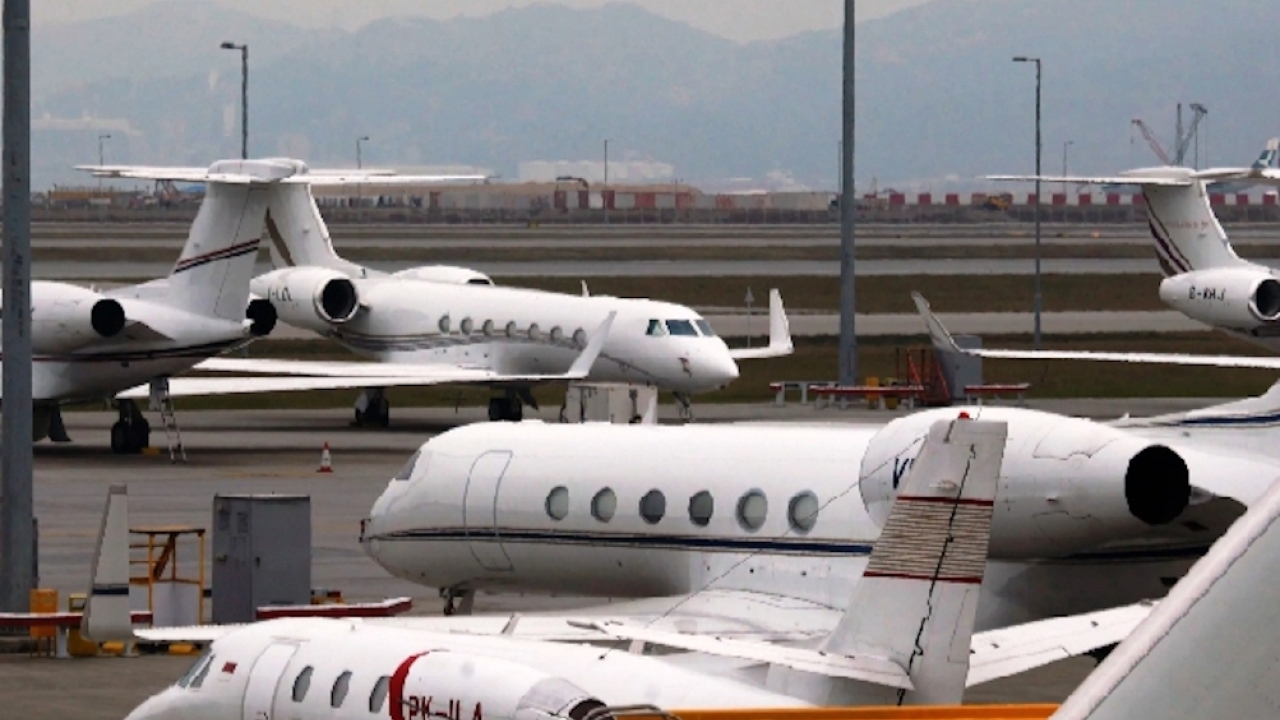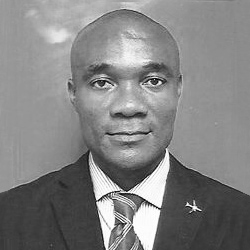Nigeria’s private jet operators call for help over bureaucracy
Nigeria has one of the largest private jet markets in the world but, does the country have the right policies to maximise the benefit?

In the spotlight: Private jets parked at Lagos airport. Picture: Lamidi Bamidele.
As Nigeria’s aviation sector gradually recovers from the effects of the Covid-19 pandemic, private jet operators are contending with decisions on the new realities and advocating a more favourable policy environment to sustain this market.
In August 2015, Nigeria had no fewer than 146 private jets. However this had reduced to less than 100 by August 2021, with only about 45 being active.
With lockdowns and the inability to use the aircraft since the onset of the Covid-19 pandemic, maintenance and other costs have risen.
Air Operator’s Certificate (AOC) holders of private Gulfstream jets, Hawker series, Challenger Global 5000, and Falcon 7x jets in the country include top politicians, business moguls, and even pastors. However, many of the luxury jets are not in operation and are building up heavy fees on a daily basis.
The downtime in global business, risk of exposure to Covid-19, and the hurdles of overcoming travel restrictions overseas, all contribute to the current market situation.
Omotade Lepe, chief operating officer at the Association of Private Jets Nigeria, revealed that the sub-sector had lost between $1 billion to $5 billion due to the pandemic.
Speaking in Lagos at a recent launch of a mobile app from new luxury tech and travel company, Avantefly, Benedict Adeyileka, the former rector of the International Aviation College (IAC) in Ilorin, Kwara State, called for policies that could encourage private jet operators in the interest of Nigeria’s economy.
He stressed the importance of encouraging investors to use their savings, or to borrow from banks, to purchase assets or aircraft for business, and to be confident that the country’s policies would protect them.
Adeyileka emphasised the need for a deeper evaluation of the policies that could encourage the sub-sector’s prosperity, spilling into contributions to the overall economy of the country.
“The only way we can stop these problems we have now is to have our own manpower development, to have our own internal development. I don’t want a situation where there is lack of capacity and people from outside the country will come inside the country and take the market,” he said.
Dikko Nwachukwu, chief executive of Jetwest Mobility, said there were opportunities for Nigeria that the Covid-19 pandemic experience had produced, stressing that tapping into these would give luxury operators the required boost.
He made a case for partnerships, saying it [Covid] had become a great catalyst in making the industry sit up.
“Looking inwards to see how we can grow our own industries here in Nigeria, we have a lot of resources across west Africa. We have a lot, and brothers in east and southern Africa have been doing this for a long time. The question is: ‘How do we key into this’?”
David Augustine, chief pilot of Ezuma Jets, agreed, noting that there was huge potential for business if policies are put right, despite the Covid situation.
“We need the government to help us out with easier policies,” he said, emphasising the importance of making the AOC acquisition process easier.
“I want us to understand that the private jet industry is an industry that can bring so much change into the Nigerian economy,” he added, explaining that pulling resources together could help private jet operators in times like this.
To make the environment more progressive for this unique market, Olu Ohunayo of the Aviation Safety Round Table Initiative (ASTRTI) said the government should provide a safe environment for private jets operations.
However, he also noted that the government needed to tighten recording processes and ensure that organisations paid the requisite fees for the country’s benefit.
Stay up to date
Subscribe to the free Times Aerospace newsletter and receive the latest content every week. We'll never share your email address.


